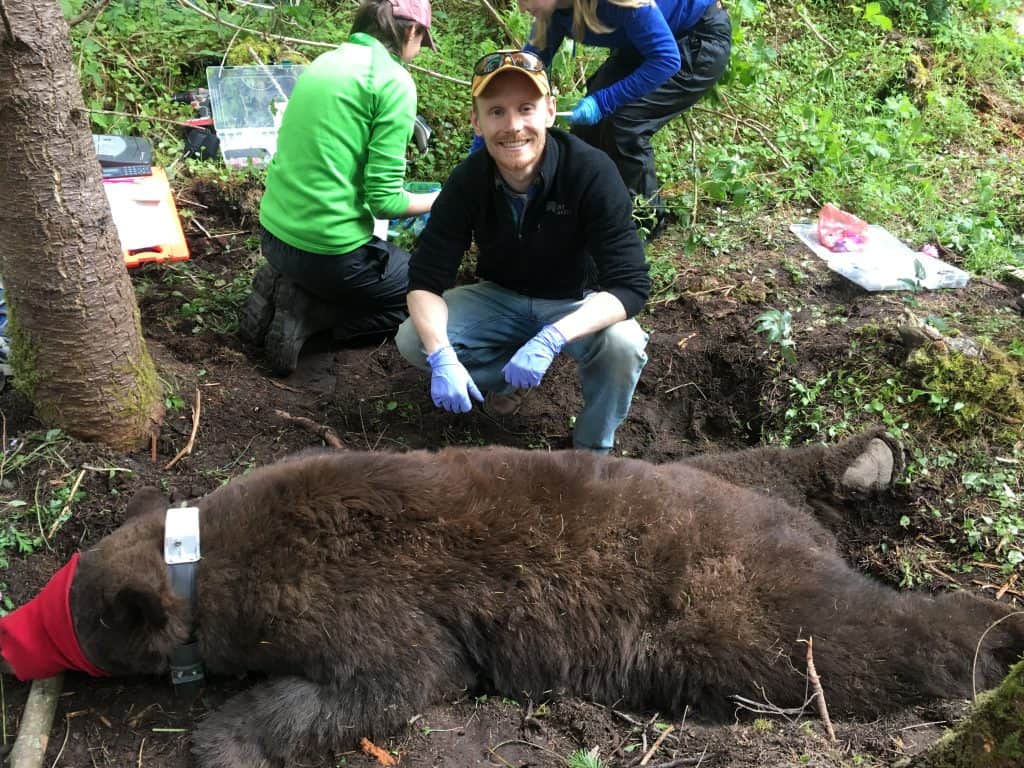Career Paths
By Rob Nagel

In today’s wildlife profession, there are a number of paths to your dream career; many of which do not always follow a traditional or expected route. Rob Nagel, a member of the Early Career Professional Working Group, recently shared details with us on his is somewhat unusual career path.
Many young professionals and new graduates expect that they will have to go to graduate school for any chance of a career in wildlife, even if the idea of more school is hard to swallow. But there are other paths! Rob secured a full-time, permanent position as a Wildlife Biologist without getting a graduate degree. We recently asked Rob a few questions and think you’ll find his story inspiring if you are ready to start your career!
- What drew you into wildlife as a career option?
Like most of us wildlifers, I had a love of the outdoors and animals from a young age. I also developed a passion for photography in high school which further drew me toward wildlife as a subject matter. I had no idea what kinds of careers were available in our field until after I started my undergrad. All I knew is that the degree I was pursuing had wildlife in the title, which was enough for me!
- What degree did you get from undergrad?
I graduated in 2010 with a B.S. in Wildlife Resources from the University of Idaho.
- What has your career path been since graduating?
I secured a Biological Technician position with the U.S. Forest Service, working on the Gallatin National Forest in SW Montana, where I worked for two summers. The winter/spring of 2012 I got a job doing surveys for spotted owls for Green Diamond Resource Company in Northern California. The following winter/spring I got a seasonal position doing marbled murrelet habitat delineation with the Washington Department of Natural Resources. I then got a permanent position with Port Blakely as a Wildlife Technician inventorying and mapping regulated features, such as streams, nests, and other ecologically sensitive sites. I was then promoted to a Field Biologist, and ultimately a Wildlife Biologist. I have now been with Port Blakely for five years.
- What is your current position?
My current position is as a Wildlife Biologist for Port Blakely – US Forestry, where I have a number of duties and opportunities such as surveying for a range of species and their habitats, compliance and effectiveness monitoring for two different federal conservation agreements that Port Blakely holds (a Habitat Conservation Plan and a Safe Harbor Agreement), research collaboration, and management/policy input.
Note: According to its website, Port Blakely – US Forestry “cultivates forestland to provide the world with renewable forest products and healthy wildlife habitat. With family owners whose roots in forestry run five generations deep, we take the long view, advancing the science and practice of sustainable forestry for the greater good, while treating neighbors and employees with genuine, lasting respect.”
- What do you think contributed to your ability to secure a full-time wildlife position without getting a Master’s degree, like so many of us think we need?
It all started in my undergrad. One of my T.A.s had a PhD project researching habitat selection of mountain goats in the North Cascades of Washington State, and he needed help with the field work during the summer, so I volunteered. I know for a fact that the only reason I got my first job after graduating with the Forest Service because I had that field experience on my resume. I also know that the only reason I was selected for the spotted owl survey position was because of the experience I gained with the Forest Service. I can keep going and going, but you get the point. Everything has been a literal career path, each step I took allowed me to take another. Just like walking, some steps are bigger than others, but they all help move you forward. In hindsight, every step I took built up my skills, experience, and ultimately my resume so I was qualified to get the permanent position I now hold.
- What advice would you give to a young person who is just getting started in wildlife?
I would suggest that they take every opportunity to gain more experience in our field. At first, they will most likely have to volunteer because they will not be qualified for a paid position. I would suggest volunteering early and often in their undergrad while they have the flexibility to do so, because once they graduate, they will most likely have bills to start paying and volunteering becomes much harder at that point!
If you would like to get in touch with Rob, he can be reached at rnagel@portblakely.com.


